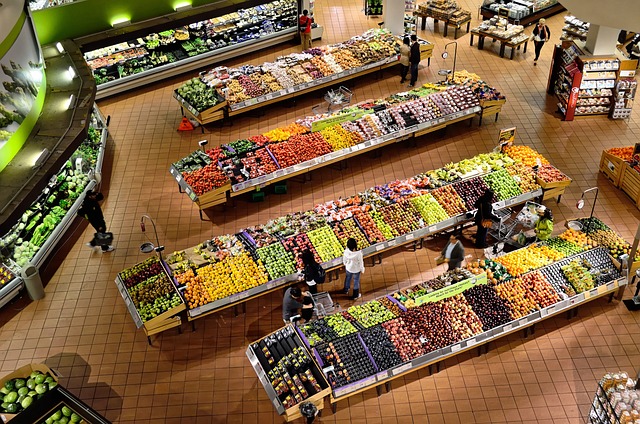The Gut Garden: Unleashing the Power of Probiotics for Digestive Health
Picture your gut as a beautiful, thriving garden. Just like any garden, it requires care and nourishment to flourish. One of the key elements in maintaining a healthy gut garden is the presence of probiotics.
What are Probiotics?
Probiotics are live bacteria and yeasts that are beneficial for our digestive system. These friendly microorganisms primarily reside in our gut and play a vital role in maintaining our overall well-being.
While bacteria are often associated with illness and infection, it’s crucial to understand that not all bacteria are harmful. In fact, our bodies are filled with trillions of good bacteria that aid in digestion, support the immune system, and promote a healthy balance within our gut flora.
The Importance of a Healthy Gut
Your gut is home to trillions of microbes, collectively known as the gut microbiota. This complex ecosystem is unique to each individual and can be influenced by various factors such as diet, lifestyle, and medications.
A healthy gut plays a crucial role in several aspects of our health, including:
- Digestion: Probiotics help break down food, ensuring optimal nutrient absorption.
- Immune System: Approximately 70% of our immune system resides in the gut. Probiotics help regulate immune responses and defend against harmful pathogens.
- Mood and Mental Health: The gut-brain axis connects the gut and brain through a complex network of nerves and chemical signals. Probiotics have been linked to improved mental well-being and reduced symptoms of anxiety and depression.
- Inflammation: A balanced gut microbiota helps reduce chronic inflammation, which is associated with various diseases, including obesity, diabetes, and autoimmune conditions.
- Weight Management: Some studies suggest that certain probiotic strains may aid in weight loss and prevent weight gain.
Sources of Probiotics
Probiotics can be found naturally in several foods, including:
- Yogurt: Look for yogurt that contains live and active cultures. Greek yogurt, kefir, and other fermented dairy products are excellent sources.
- Sauerkraut: Fermented cabbage is not only delicious but also packed with probiotics.
- Kombucha: This fizzy, fermented tea is teeming with beneficial bacteria and yeasts.
- Kimchi: A Korean staple made from fermented vegetables. It’s both spicy and probiotic-rich.
- Tempeh: This Indonesian soy product is a great source of probiotics and plant-based protein.
- Miso: A traditional Japanese seasoning made from fermented soybeans. It adds a unique flavor to soups and stews.
While these foods are rich in probiotics, it’s important to note that different strains provide different benefits. To enjoy a diverse range of probiotics, consider incorporating a variety of these foods into your diet.
Supplements: A Convenient Option
If it’s challenging to consume probiotic-rich foods regularly, supplements can be a convenient alternative. Probiotic supplements come in various forms such as capsules, tablets, powders, and even gummies, making it easier to incorporate them into your routine.
When selecting a probiotic supplement, consider the following:
- Strain Diversity: Look for a supplement with multiple strains to target various aspects of gut health.
- Colony Forming Units (CFUs): This measurement indicates the number of live organisms present in a probiotic. Choose a supplement with a CFU count suitable for your needs.
- Shelf Stability: Some probiotics require refrigeration, while others can be stored at room temperature. Pick one that fits your lifestyle.







